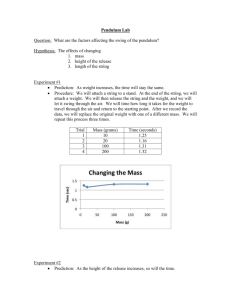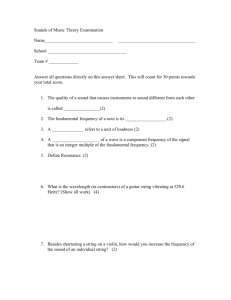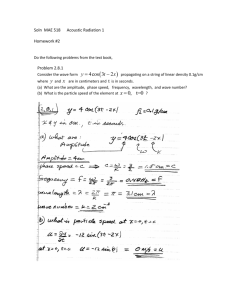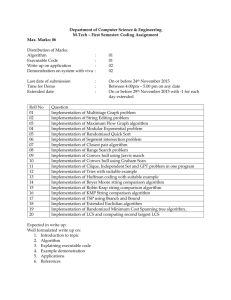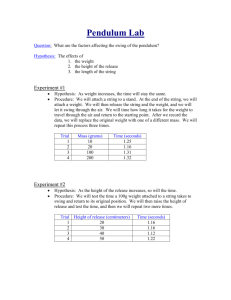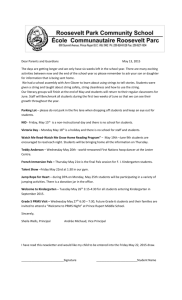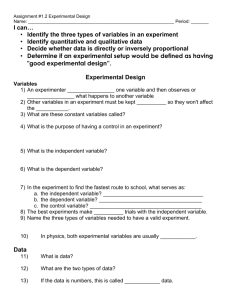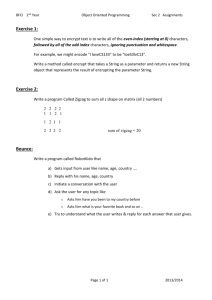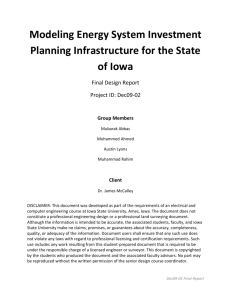Piaget Stages
advertisement
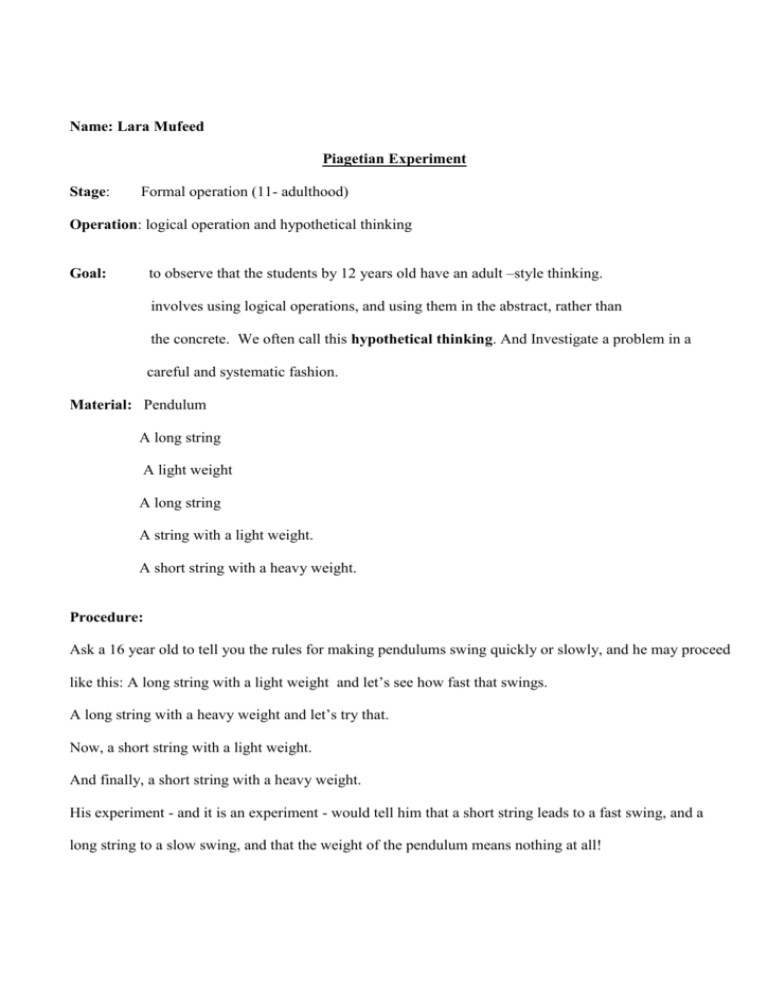
Name: Lara Mufeed Piagetian Experiment Stage: Formal operation (11- adulthood) Operation: logical operation and hypothetical thinking to observe that the students by 12 years old have an adult –style thinking. Goal: involves using logical operations, and using them in the abstract, rather than the concrete. We often call this hypothetical thinking. And Investigate a problem in a careful and systematic fashion. Material: Pendulum A long string A light weight A long string A string with a light weight. A short string with a heavy weight. Procedure: Ask a 16 year old to tell you the rules for making pendulums swing quickly or slowly, and he may proceed like this: A long string with a light weight and let’s see how fast that swings. A long string with a heavy weight and let’s try that. Now, a short string with a light weight. And finally, a short string with a heavy weight. His experiment - and it is an experiment - would tell him that a short string leads to a fast swing, and a long string to a slow swing, and that the weight of the pendulum means nothing at all! Indication of mastery : the student told the teacher that a short string leads to a fast swing, and a long string to a slow swing, and that the weight of the pendulum means nothing at all. Indication of non-mastery: if the student does not tell the teacher that It doesn’t short string leads to a fast swing, and a long string to a slow swing, and that the weight of the pendulum means nothing at all. It could be that student not in the formal operation. Transition: if the student is not sure of the answer and has doubt. Also the formal operations stage is something that not everyone actually gets to. Because the abstract reasoning is simply not universal.
